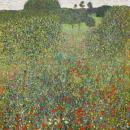Con tua moglie che lavava i piatti in cucina e non capiva
con tua figlia che provava il suo vestito nuovo e sorrideva
con la radio che ronzava
per il mondo cose strane
e il respiro del tuo cane che dormiva.
Coi tuoi santi sempre pronti a benedire i tuoi sforzi per il pane
con il tuo bambino biondo a cui hai donato una pistola per Natale
che sembra vera,
con il letto in cui tua moglie
non ti ha mai saputo dare
e gli occhiali che tra un po’ dovrai cambiare.
Com’è che non riesci più a volare?
com’è che non riesci più a volare?
com’è che non riesci più a volare?
com’è che non riesci più a volare?
Con le tue finestre aperte sulla strada e gli occhi chiusi sulla gente
con la tua tranquillità, lucidità, soddisfazione permanente
la tua coda di ricambio
le tue nuvole in affitto
le tue rondini di guardia sopra il tetto.
Con il tuo francescanesimo a puntate e la tua dolce consistenza
col tuo ossigeno purgato e le tue onde regolate in una stanza
col permesso di trasmettere
e il divieto di parlare
e ogni giorno un altro giorno da contare.
Com’è che non riesci più a volare?
com’è che non riesci più a volare?
com’è che non riesci più a volare?
com’è che non riesci più a volare?
Con i tuoi entusiasmi lenti precisati da ricordi stagionali
e una bella addormentata che si sveglia a tutto quel che le regali
con il tuo collezionismo
di parole complicate
la tua ultima canzone per l’estate.
Con le tue mani di carta per avvolgere altre mani normali
con l’idiota in giardino ad isolare le tue rose migliori
col tuo freddo di montagna
e il divieto di sudare
e più niente per poterti vergognare.
Com’è che non riesci più a volare?
com’è che non riesci più a volare?
com’è che non riesci più a volare?
com’è che non riesci più a volare?
con tua figlia che provava il suo vestito nuovo e sorrideva
con la radio che ronzava
per il mondo cose strane
e il respiro del tuo cane che dormiva.
Coi tuoi santi sempre pronti a benedire i tuoi sforzi per il pane
con il tuo bambino biondo a cui hai donato una pistola per Natale
che sembra vera,
con il letto in cui tua moglie
non ti ha mai saputo dare
e gli occhiali che tra un po’ dovrai cambiare.
Com’è che non riesci più a volare?
com’è che non riesci più a volare?
com’è che non riesci più a volare?
com’è che non riesci più a volare?
Con le tue finestre aperte sulla strada e gli occhi chiusi sulla gente
con la tua tranquillità, lucidità, soddisfazione permanente
la tua coda di ricambio
le tue nuvole in affitto
le tue rondini di guardia sopra il tetto.
Con il tuo francescanesimo a puntate e la tua dolce consistenza
col tuo ossigeno purgato e le tue onde regolate in una stanza
col permesso di trasmettere
e il divieto di parlare
e ogni giorno un altro giorno da contare.
Com’è che non riesci più a volare?
com’è che non riesci più a volare?
com’è che non riesci più a volare?
com’è che non riesci più a volare?
Con i tuoi entusiasmi lenti precisati da ricordi stagionali
e una bella addormentata che si sveglia a tutto quel che le regali
con il tuo collezionismo
di parole complicate
la tua ultima canzone per l’estate.
Con le tue mani di carta per avvolgere altre mani normali
con l’idiota in giardino ad isolare le tue rose migliori
col tuo freddo di montagna
e il divieto di sudare
e più niente per poterti vergognare.
Com’è che non riesci più a volare?
com’è che non riesci più a volare?
com’è che non riesci più a volare?
com’è che non riesci più a volare?
Contributed by Bernart Bartleby - 2014/8/20 - 19:01
Language: English
La versione inglese di Dennis Criteser [2014]
Dal blog Fabrizio De André in English
Dal blog Fabrizio De André in English
"The music of "Canzone per l'estate" is entirely De Gregori's, while the lyrics were co-written. De André described the song as somewhat autobiographical, describing the tension between the bourgeois life he grew up in and lived much of his life in, and his attraction to anarchism and to society's outcasts who seemed more genuine and alive than the upper classes. Indeed the song describes well the soul-sapping nature of a comfortable, prosperous life that takes one away from vitality and even political engagement ("your eyes closed to the people")." - Dennis Criteser
SONG FOR THE SUMMER
With your wife who washed
dishes in the kitchen and didn’t understand,
with your daughter who tried on
her new outfit and smiled,
with the radio that droned
strange things for the world,
and the breathing of your dog that slept.
With your saints ever ready
to bless your efforts to bring home the bread,
with your little blonde boy to whom
for Christmas you gave a pistol
that seemed real,
with the bed in which your wife
never knew how to love you,
and the glasses you’ll have to change in a bit.
How is it that you can’t manage to fly anymore?
How is it that you can’t manage to fly anymore?
How is it that you can’t manage to fly anymore?
How is it that you can’t manage to fly anymore?
With your windows open onto the street
and your eyes closed to the people
with your calmness, lucidity,
permanent satisfaction
your tail of change,
your rented clouds
and the swallows on guard on your roof
With your Franciscanism in installments
and your sweet substance,
with your purified oxygen
and the dialed-in waves in a room,
with permission to broadcast
and speaking prohibited
and every day another day to count.
How is it that you can’t manage to fly anymore?
How is it that you can’t manage to fly anymore?
How is it that you can’t manage to fly anymore?
How is it that you can’t manage to fly anymore?
With your slow enthusiasms
defined by seasonal memories
and a sleeping beauty who wakes up
to every gift that you give to her,
with your collecting
of complicated words,
your final song for the summer.
With your hands of paper
for wrapping other normal hands,
with the fool in the garden
to isolate your best roses,
with your mountain coldness
and the ban on sweating
and nothing more that can embarrass you.
How is it that you can’t manage to fly anymore?
How is it that you can’t manage to fly anymore?
How is it that you can’t manage to fly anymore?
How is it that you can’t manage to fly anymore?
With your wife who washed
dishes in the kitchen and didn’t understand,
with your daughter who tried on
her new outfit and smiled,
with the radio that droned
strange things for the world,
and the breathing of your dog that slept.
With your saints ever ready
to bless your efforts to bring home the bread,
with your little blonde boy to whom
for Christmas you gave a pistol
that seemed real,
with the bed in which your wife
never knew how to love you,
and the glasses you’ll have to change in a bit.
How is it that you can’t manage to fly anymore?
How is it that you can’t manage to fly anymore?
How is it that you can’t manage to fly anymore?
How is it that you can’t manage to fly anymore?
With your windows open onto the street
and your eyes closed to the people
with your calmness, lucidity,
permanent satisfaction
your tail of change,
your rented clouds
and the swallows on guard on your roof
With your Franciscanism in installments
and your sweet substance,
with your purified oxygen
and the dialed-in waves in a room,
with permission to broadcast
and speaking prohibited
and every day another day to count.
How is it that you can’t manage to fly anymore?
How is it that you can’t manage to fly anymore?
How is it that you can’t manage to fly anymore?
How is it that you can’t manage to fly anymore?
With your slow enthusiasms
defined by seasonal memories
and a sleeping beauty who wakes up
to every gift that you give to her,
with your collecting
of complicated words,
your final song for the summer.
With your hands of paper
for wrapping other normal hands,
with the fool in the garden
to isolate your best roses,
with your mountain coldness
and the ban on sweating
and nothing more that can embarrass you.
How is it that you can’t manage to fly anymore?
How is it that you can’t manage to fly anymore?
How is it that you can’t manage to fly anymore?
How is it that you can’t manage to fly anymore?
Contributed by Riccardo Venturi - 2016/2/9 - 20:25
In realtà, Fabrizio De André descrisse questa canzone (il cui testo è, sarà bene ricordarlo, stato scritto assieme a Francesco De Gregori) come in un certo qual modo autobiografica. Parla, secondo De André, della tensione tra la vita borghese in cui era cresciuto e aveva vissuto parte della sua vita, e l’attrazione per l’Anarchia e per gli “ultimi” della società, che gli sembravano molto più vivi e genuini delle classi superiori. Fatta salva l’oscurità del testo, caratteristica del resto saliente di quell’album “degregoriano”, si avverte comunque abbastanza bene l’attacco alla vita borghese, confortevole e prospera, che distoglie l’essere umano dalla vitalità e dall’impegno politico (gli “occhi chiusi sulla gente”). Per quel che mi riguarda, l’ho sempre avvertita molto come una canzone sulla dissoluzione della famiglia borghese.
Riccardo Venturi - 2016/2/9 - 08:06
questa degnissima "canzone" che mi dà fastidio chiamarla così perché è molto di più, l'ho sempre fatta sposare con "Amico Fragile" nella loro malinconica considerazione dell'Essere umano povero borghese che ha due cose e si sente padrone pari al suo padrone che gli concede di averle, ben sapendo il vero padrone che non appena una mattina si sveglia male e gli gira storta, gli farà pagare quelle povere piccole cose con gli interessi e ben oltre
Alberto Giannullo - 2018/10/22 - 16:52
Testo che secondo me va anche al di là della dualità borghesia-anarchia/proletariato. Forse in quegli anni la politica era preminente e io me la ricordo bene. Descrive una condizione secondo me che oggi può esulare dal contesto pseudo-rivoluzionario (culturale) di quel periodo. Descrive la condizione umana di chi guarda con occhio disincantato una realtà nella quale a torto o ragione non si riconosce più. I sogni, le speranze, l'ottimismo della vita nuova di una famiglia, dei rapporti nei quali si era creduto. La realtà delle cose cede alla malinconia e alla tristezza che sale: com'è che non riesci più a volare...
Giovanni Milan - 2023/1/11 - 23:57
×
![]()
Note for non-Italian users: Sorry, though the interface of this website is translated into English, most commentaries and biographies are in Italian and/or in other languages like French, German, Spanish, Russian etc.








Parole di Fabrizio De André con Francesco De Gregori
Musica di Francesco De Gregori.
Nell’album di Faber intitolato semplicemente “Volume 8” pubblicato nel 1975.
Ripresa da De Gregori, con alcune piccole modifiche, parecchi anni dopo, nell’album “Amore nel pomeriggio” del 2001.
Interpretata anche da Edoardo Bennato in "Faber Amico Fragile Genova 12/03/00 Tributo a Fabrizio De André"
Quando ho riletto il testo di questa canzone mi è sembrata una versione solo più pacata ma altrettanto feroce e corrosiva della Canzone del Maggio, gogna di benpensanti e vigliacchi...
E alcuni versi ne fanno, secondo me, una candidata alle CCG/AWS, o quanto meno un Extra, uno su tutti, “con il tuo bambino biondo a cui hai donato una pistola per Natale che sembra vera”...